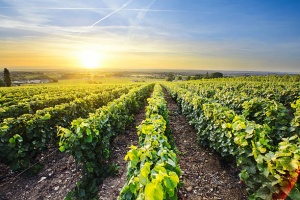Bordeaux 2050 will be drastically different due to climate change claims winemaker

Global warming could render Bordeaux a very different wine to that which drinkers expect from the French region today, a winemaker and oenologist has cautioned.
The Bordeaux of 2050 could be much fruitier, with a reduced capacity for ageing, and with a lower alcohol content if temperatures rise between 2 to 4 degrees according to Pascal Chatonnet. This is the likely temperature change as predicted by the the Intergovernmental Panel on Climate Change.
Chatonnet modelled the Bordeaux of 2050 by growing Cabernet Sauvignon and Merlot grapes in warmer climates in Languedoc-Roussillon and Tunisia. Using a 50/50 blend of the two grapes, he then made predictions about the future of Bordeaux wine.
"For the moment, on the red [wine] the consequences [of climate change] are rather positive. When we have, for example, an Indian summer, there is an improvement of the vintage,” he told French news outlet 20 Minutes. "But if we let this same climatic phenomenon unfold, it may change. In extreme climates, we have never made high quality products."
He described the “2050” wines as "quite supple, but almost syrupy", while the nose "was of very ripe fruit - almost jam-like". The alcohol content was also likely to drop from the typical 14-15% to 13.5%, he said, due to the more rapid ripening of grapes, despite the assumption that warmer climates result in increased alcohol levels.
As the grapes mature faster in higher temperatures, the wine will have less capacity for ageing and some of the subtleties of flavour are likely to be lost, he added. "With the acceleration of the maturation cycle, we can miss a lot of things. This is an important warning because the vineyards planted today in 2018 will be the ones we are going to taste in 2050."
